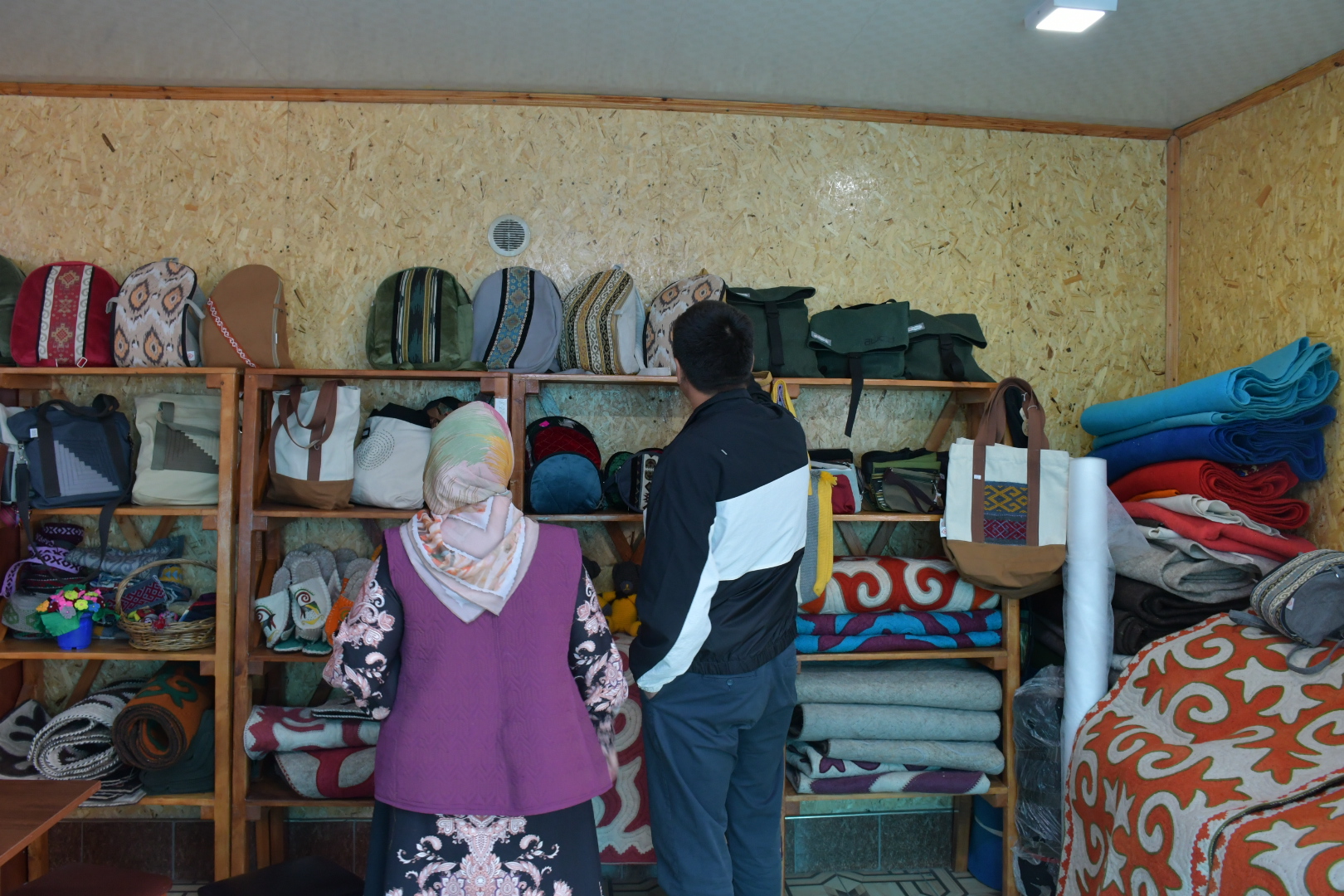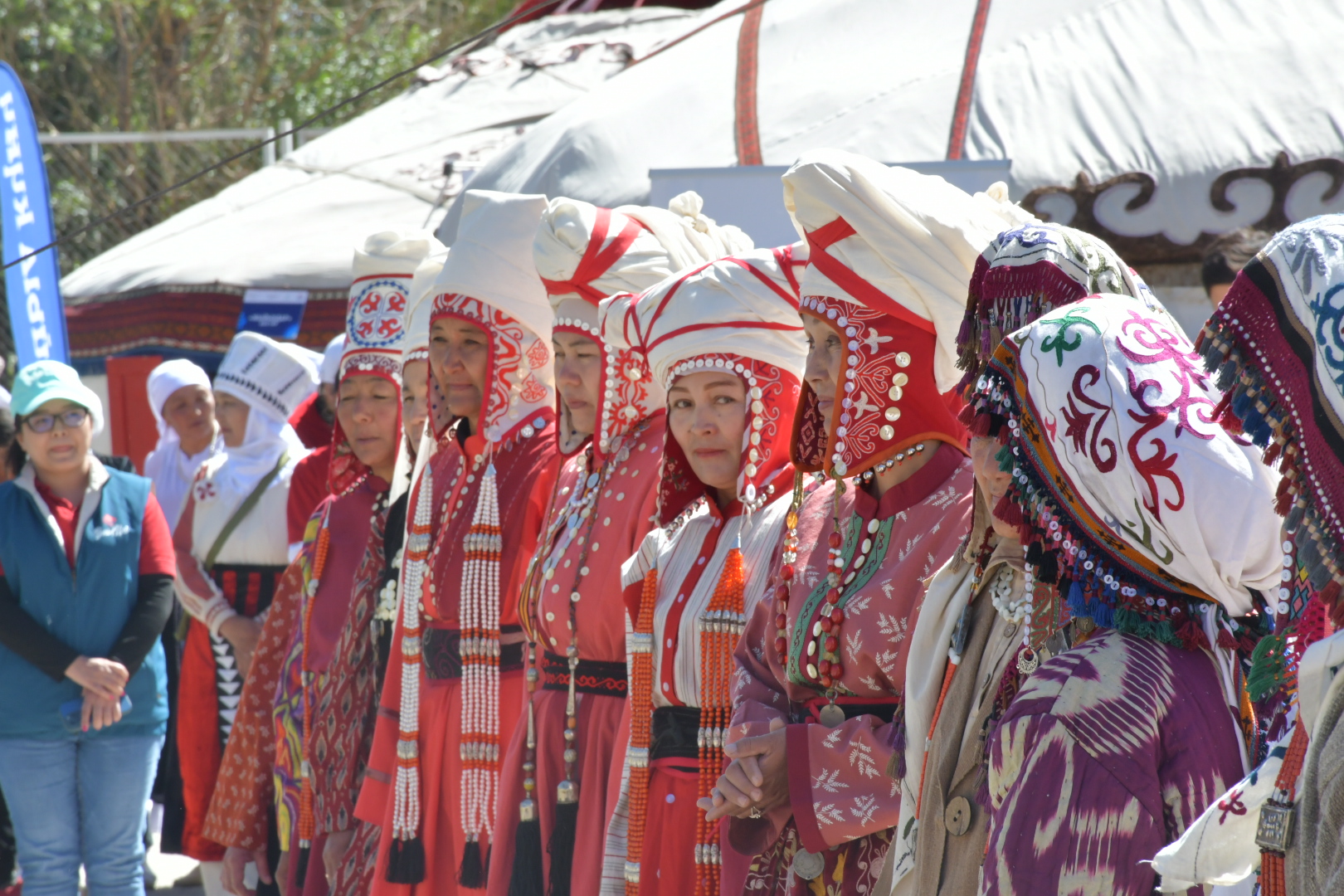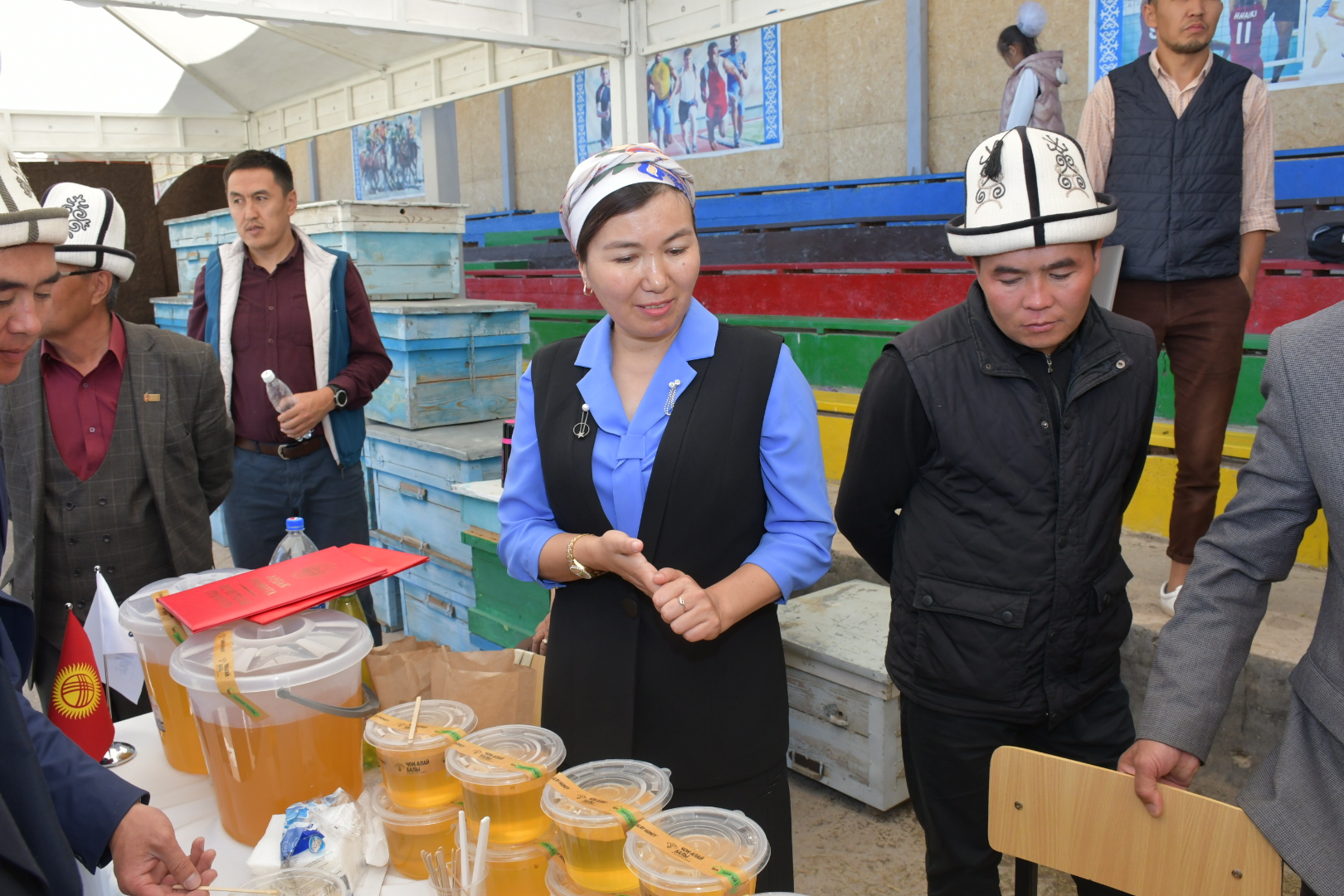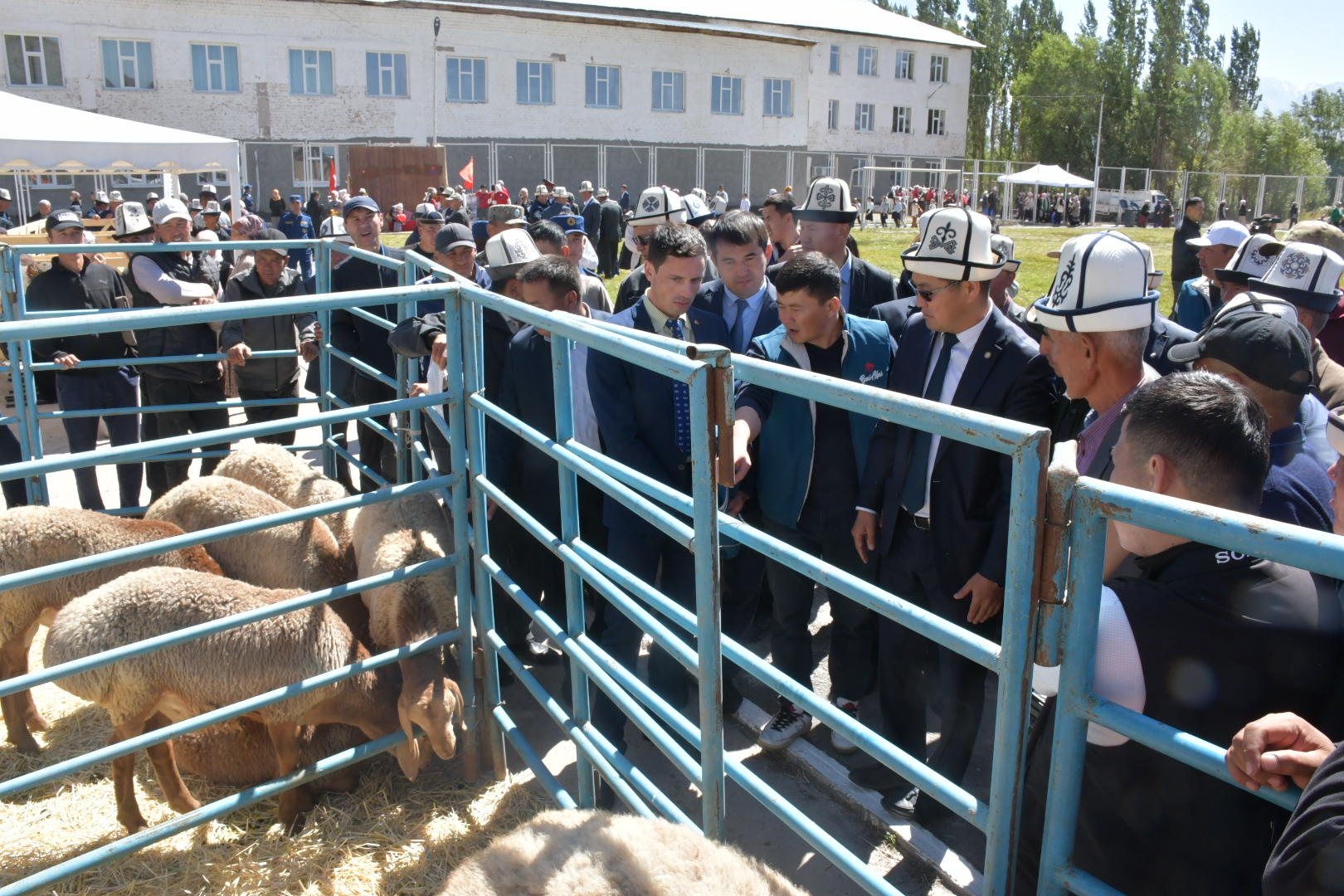On September 5, 2023, the village of Daroot-Korgon hosted the 'Village Day' fair, organized by the Swiss Bai Alai program in collaboration with the Chon-Alai district state administration. The primary objective of this event was to disseminate information and acquaint the local population with the accomplishments realized during the project's nine-year operation in the Alai and Chon-Alai regions.
The opening ceremony featured esteemed guests, including Ernest Toltoev, the deputy representative of the President of the Kyrgyz Republic in the Osh region; Temirbolot Abykeyev, the head of the Chon-Alai district state administration; Renaud Vuignier, the head of Head of Domain in the International Cooperation Department of the Swiss Embassy; Anja de Beer, the director of the Helvetas Kyrgyzstan; and Davlasultan Dorgabekova, the director of the Aga Khan Foundation in the Kyrgyz Republic. These speakers provided positive assessments of the project's work and expressed their desire for continued close cooperation with local authorities.
The fair showcased best practices in livestock farming, beekeeping, tourism, and crafts, along with the products stemming from these industries. Over the course of nine years, the project invested 6,261 Swiss francs in the development of these sectors, resulting in more than 4,600 farmers, beekeepers, manufacturers, and artisans earning an additional income exceeding 6.3 million US dollars. The project has achieved the following long-term economic transformations:
1. The establishment of two public associations promoting entrepreneurship among vulnerable segments of the population, particularly women. These associations currently unite over 450 local women artisans whose products are successfully sold not only in Kyrgyzstan's major cities, such as Osh and Bishkek, but also on international electronic trading platforms like Wildberries and eBay. Additionally, products made from 'taar' material crafted by these artisans are exported to Germany.
2. The creation of the 'Visit Alay' brand, which has raised awareness of the region's geography and natural beauty in Europe, North America, and South America. The number of European and Western tourists visiting the region annually has surged from 1,400 tourists in 2013 to over 9,500 by the end of August 2023. As part of the project, efforts were made to enhance service quality in local hostels and guesthouses, resulting in a 180 increase in entities offering tourist services compared to 2013. The Alai region earned a place on the list of the world's top 100 developing tourist destinations in 2022, according to the Green Destinations.
3. The revival and development of beekeeping in the region. In 2017, honey produced in the Alai and Chon-Alai regions failed to meet food standards and laboratory analysis. The Bai Alai project resolved this issue by organizing beekeeping cooperatives in these regions, providing training, and connecting them with large honey-exporting companies in Kyrgyzstan. As a result, Chon-Alai and Alai honey are now exported to Japan, South Korea, and China through the partnership with the Nomad Store company, a cooperative partner in these two regions. These cooperatives are currently focused on improving productivity.
4. Significant progress in livestock and cashmere production, allowing cashmere goat meat from the region to be exported to Europe and the USA since 2014. Over 16 artificial insemination specialists and more than 20 natural insemination specialists now operate in the region independently. To ensure the effectiveness and partnership-based development of the services offered, artificial insemination service specialists have formed an organization and are managing their own businesses. For instance, in February of this year, the Asyl Mal public association, which provides artificial insemination services, purchased and started using an ultrasound machine to enhance cattle care. As part of the project, highly productive breeds such as Aberdeen Angus, Swiss, and Simmental were introduced to the region, contributing to increased income for local farmers engaged in livestock farming.
The project extends beyond economic development, focusing on strengthening family institutions in the region through the innovative Gender Action Learning System (GALS) method. Over 300 families have received support to strengthen their bonds and prosper through this method, which fosters family unity based on principles of mutual respect and joint planning among family members. To propagate this method in the region, 22 specialists were trained and are successfully disseminating it.
These transformative changes have been achieved through close collaboration with representatives from the private sector, associations, unions, and government agencies in the designated areas. Each annual project plan was created collaboratively with government agencies and leading industry experts over nine years, facilitating improvements in quality, productivity, and the export of products from artisans and beekeepers in the Chon-Alai and Alai regions. Additionally, the region has emerged as the most developed and visited area in the southern part of the country, thanks to efforts in the field of tourism. Livestock farming has also become a more lucrative source of additional income for farmers facing challenging mountain conditions.
The Bai Alai project, along with its partners, has achieved remarkable success in improving quality, increasing productivity, and facilitating the export of products from artisans and beekeepers in the Chon-Alai and Alai regions. The region's tourism industry has thrived, making it the most developed and visited region in the southern part of the country. Furthermore, livestock farming has become a more lucrative source of additional income for farmers enduring harsh mountain conditions.














